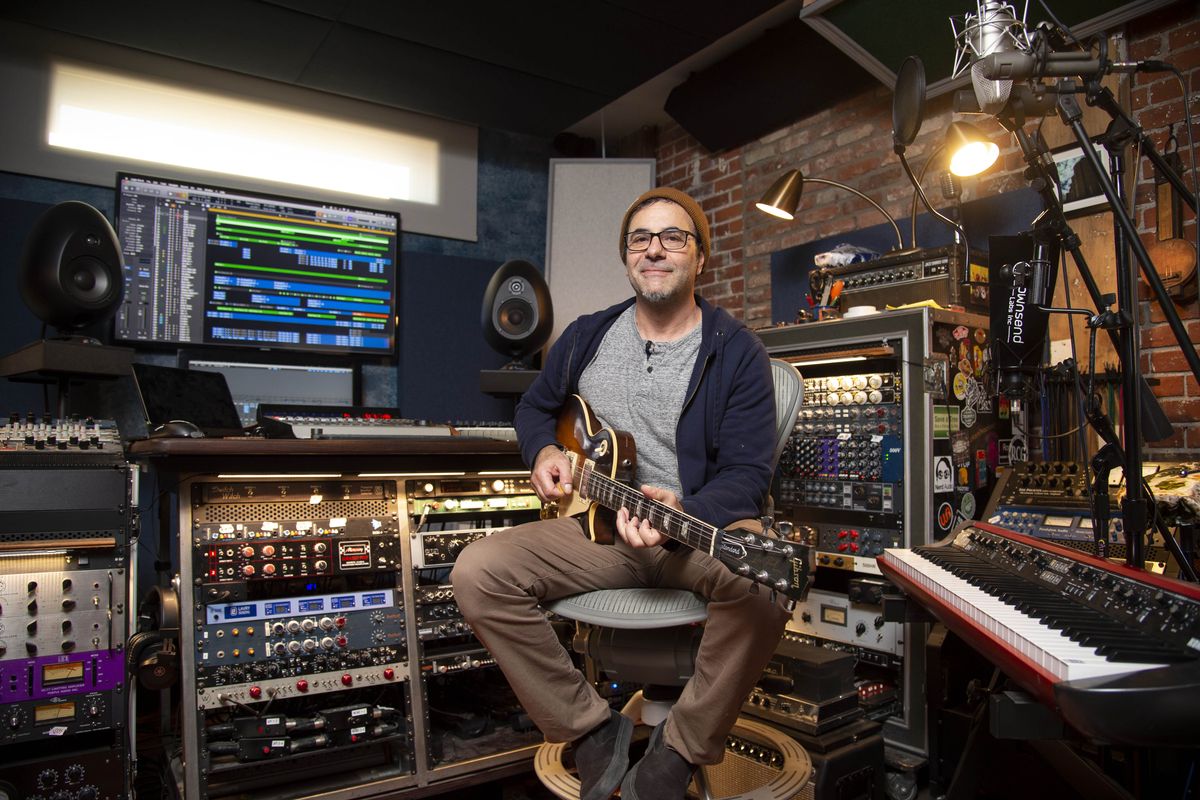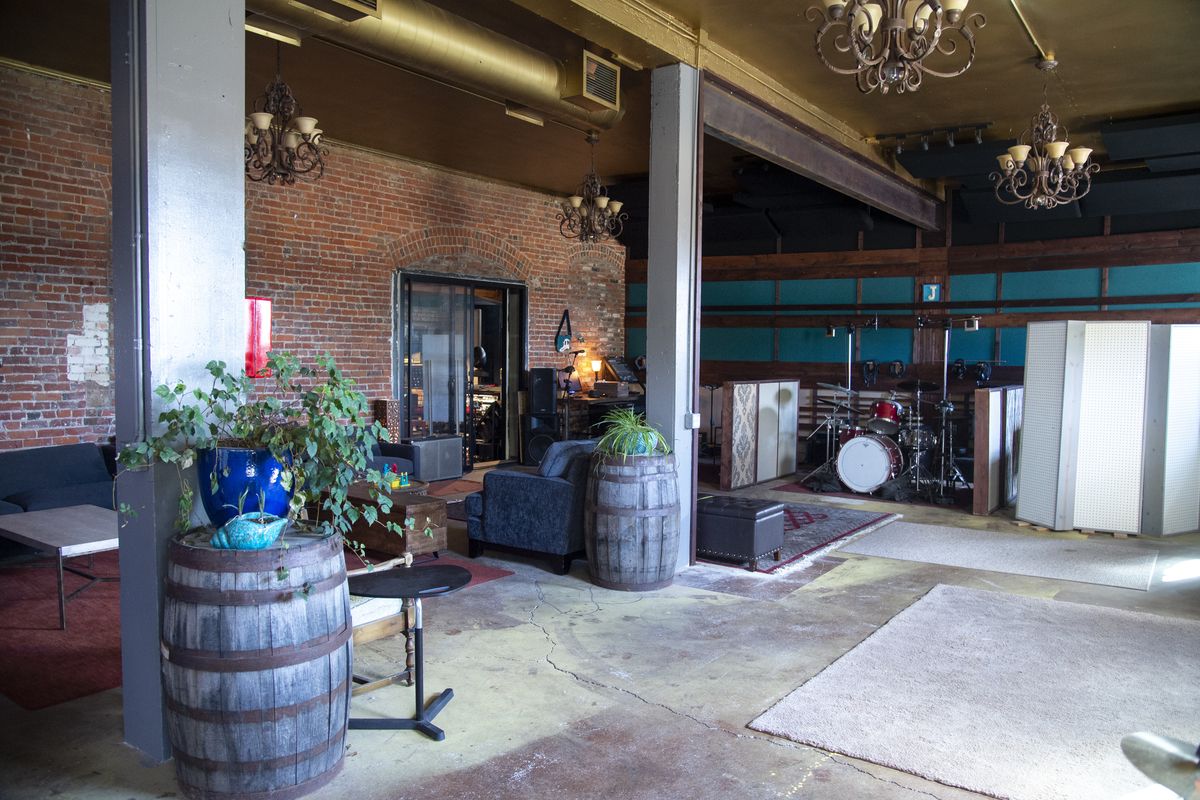Jay Condiotti records his debut EP after COVID-19 assistance from Sound Royalties

Jay Condiotti’s year was shaping up to be the perfect time for his total artistic immersion into the Spokane music scene. The New York-raised composer, producer and guitarist had formed a family and been playing live again, and he was about to put his pub-turned-recording studio, J Bones Musicland in east Spokane, through its paces.
Or at least that was the plan before the COVID-19 pandemic shuttered the live music industry, left a roster of would-be recording artists on standby and placed a heavy strain on musicians’ royalty services, stranding Condiotti without three big artistic incomes.
“It was a pretty scary situation,” Condiotti said. “I get paid mostly through (the American Society of Composers, Authors and Publishers), and all of the sudden ASCAP is kind of saying, ‘We’re being affected by COVID, too, we’re not going to be able to get our distributions out in time, we don’t know if there will be full distributions, either.’ Everything was on hold.”
Between a family of four to support and an entire recording studio sitting idly by, the Condiotti clan found their saving grace in the form of a royalty advance from Sound Royalties, a service for musicians that helps without taking the copyrights to the creator’s original content.
For any other service, this would mean Condiotti having to fork over a lifetime’s worth of rights to his licensed songs used in TV shows and films, including “Shameless,” “America’s Next Top Model,” “The Bachelor,” “Marley and Me” and “The Croods.”

“The usual M.O. in the music business, which is known for being a hard business, is you have to give up your ownership in order to get any sort of advance,” Condiotti said. “As long as you have a steady stream of income, (Sound Royalties) will work with you to do an advance, and you’re not going to have to give up copyright. And that gives the artist a lot of power.”
With his music still under his ownership, and an advance that supplied some assurance for his family through quarantine uncertainty, Condiotti and his bassist/songwriter wife, Brooke Condiotti, used that free time to record their debut self- titled EP, “Silver Smile,” which was released in August, at J Bones Musicland.
“Once we did the first couple of tracks, I kind of started writing stuff specifically for her once I got a feel for where we were going with the project,” said Condiottti, who wrote the instrumentals while Brooke handled the lyrics and melodies.
The result of that is 13 chiming minutes of purely crafted pop, equally as indebted to sincere songwriting ability as it is to the security provided by Sound Royalties that enable such songs to exist.
“That’s the best part of every day, hearing those stories of projects being released that wouldn’t have been otherwise,” said Sound Royalties founder and CEO Alex Heiche. “It’s a dream come true – it really is.”
“If you look at Jay and Brooke, he’s an amazing producer, he’s done plenty in film and television and composing, and with COVID hitting them and turning them sideways, it was just a natural fit for them to then see our COVID relief program, to take advantage of that,” Heiche said.
“Then it blossomed into this project that they wanted to release together, ‘Silver Smile.’ It’s just a perfect representation of what we’re trying to do.”
And for Condiotti, it’s safe to say he feels just as fulfilled getting to do what he loves with the woman he loves, too.
“It made me feel as if I’m doing what I’m supposed to do,” Condiotti said. “It felt like I’m able to do what I’m supposed to do, which is write songs and put music out there.”
Now, the family is looking ahead to not only more “Silver Smile” releases, but also solving how to use their studio space to safely bring other artists back into record.
“Since the space is pretty big, I’ll probably be gearing up to do more sessions in the big room, since we can have a lot of social distancing and can isolate vocalists or horn players and start working with people again pretty soon,” Condiotti said.
Even the studio itself, converted from the original Iron Goat Brewing location in 2016, is further proof to Condiotti that things are still working out the way they were meant to.
“The fact that this place kind of landed on my lap really just cemented the deal for me with Spokane, and it’s been great ever since,” he said.